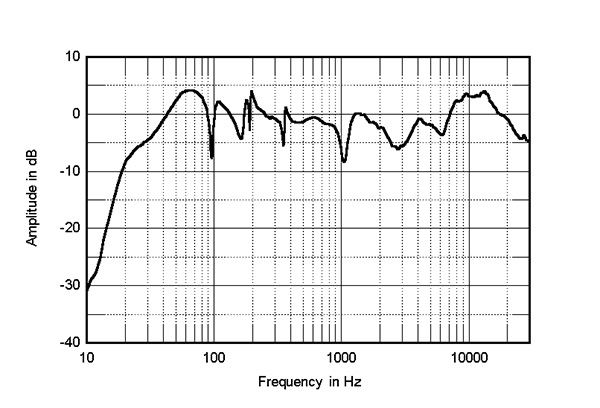Efficiency is important to me as one of my amps (a class tube A SEP) has relatively low power...impedance is important, but the sound is really all that matters...and I'll never buy anything without auditioning unless it has a very fair return policy.
What if a high end speaker measures really badly?
You know, it's true that I feel listening is more important than measurements and that it's generally difficult to really tie together measurements with pleasure. Below 0.05% THD do I care? No I do not. I really don't care. The number tells me nothing about whether I'd like the amp more or not anymore.
In this one memorable review for the Alta Audio Adam speaker, I really felt shivers go up my spine when I looked at the measurements, especially at ~$20kUSD. This looks like an absolute hot mess. Does it sound this bad though? I certainly don't have the $20K to test that out myself. What do you all think?

- ...
- 108 posts total
@erik_squires - that's a very ragged frequency response graph. I don't think speakers have to measure perfectly to sound good - Wilson Audio speakers are not textbook. But there's a difference between small deviations and big ones. |
@erik_squires I don’t think we can say much of anything about that graph, and the others presented here without knowing the level of smoothing applied to the raw data. As I am sure you know anyone who has played around with Room Equalization Wizard software knows that you can make a washboard look like a pancake with adequate smoothing applied to the chart. It’s frustrating because that critical piece of information is very seldom supplied with charts such as these when published. |
I don’t think the measurements should be ignored completely when buying speakers, even if they sound good to your ears. Over time, and outside the showroom, any serious flaws might start to become apparent. Reviewing the impedance graph can be even more important in terms of matching with your amplifier. Comparing sensitivity and nominal impedance only can result in a mismatch if there are some dips that your amplifier is not equipped to handle. |
- 108 posts total

